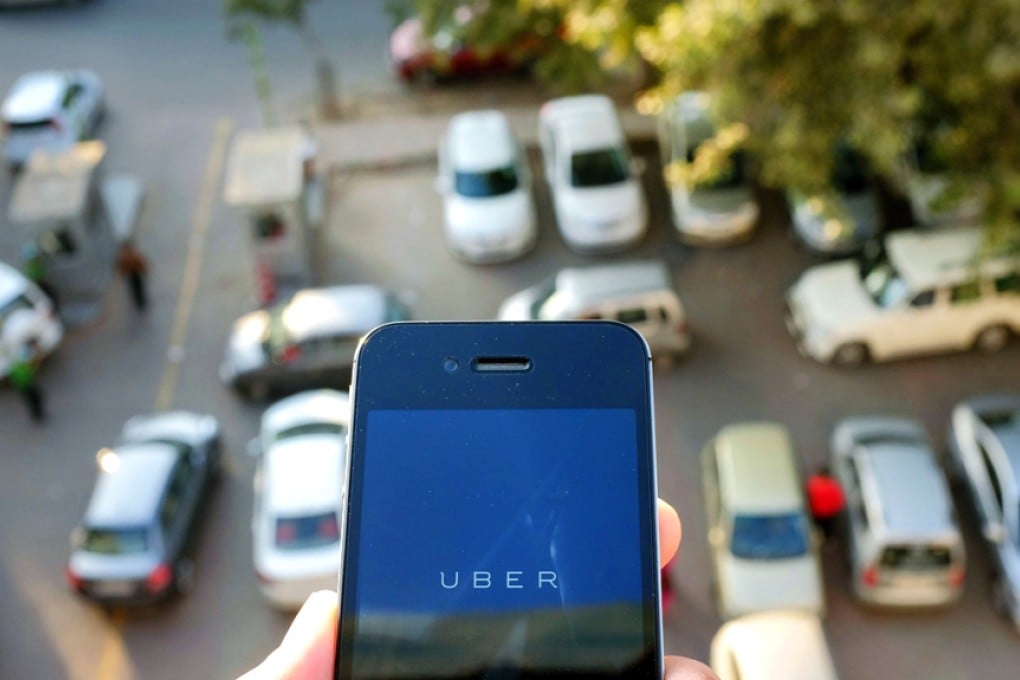Chinese transport officials raid Uber’s Guangzhou office in smartphone taxi-app crackdown
Legal status of private car services in doubt since ban on use of taxi-hailing apps in January, but Uber says working with vehicle-rental firms means it can still operate

Authorities have raided the offices of Uber in the city of Guangzhou as the transport authority said it had started a crackdown on web-connected private-car taxi companies allegedly offering illicit services, mainland media reported.
The legal status of such services has been in doubt since the national transport authority banned taxi-hailing apps in January, but Thursday’s move appears to be the first time the ban against such services has been enforced.
Officials from the city’s transport, public security and industry and commerce bureaus raided Uber’s office over claims that was organising an illegal taxi service, the Guangzhou Daily reported, citing a statement released on Thursday night by Guangzhou Municipal Transport Commission.
The commission’s statement said the authorities suspected that the company, which has its headquarters in San Francisco, in the US, did not have the necessary business registration.
“The authorities ... seized relevant operational tools, including mobile phones and other terminals,” it said. “The investigation is ongoing.”
Pictures of the raid published online show uniformed officers apparently inside Uber’s office, seizing cartons full of mobile phones.